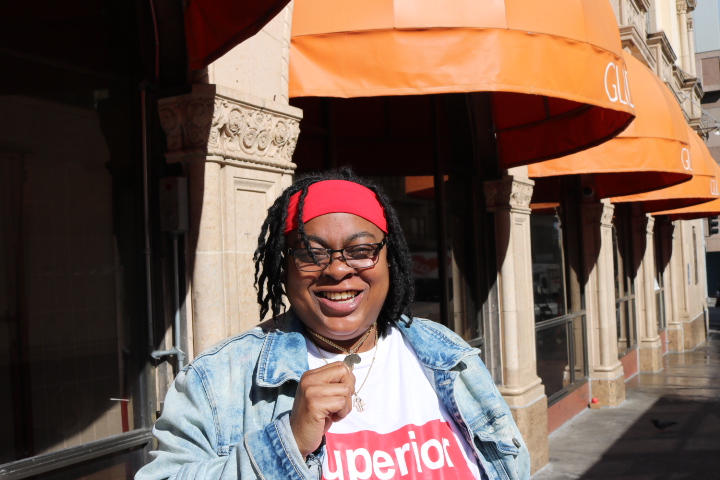GLIDE Voices is honoring Black History Month; we asked Senecca Vaughn, Women’s Center Peer Advocate, what does Black History Month mean for you?

“Black History Month used to be a week back in the ’50s and ’60s. I am happy we do have at least a month out of the year in which we are recognized and acknowledged for all of our accomplishments, because this country would not be what it was without Black people, period.
My grandmother was born in 1928 in Mobile, Alabama. When she was young, she saw her family’s farm taken from her. Her and my uncle had a horse, the family had horses and farm animals. And she said she watched the white folks come and take the land from them. I often wish I would’ve known exactly where that land was because I’d try to go fight for it in some way, shape or form. My grandmother raised 11 kids during Jim Crow. Those were the laws that kept Black people from having full, equal rights. You know, you’d have two schools, but the white schools had the better everything. Black folks barely had a book to share, kept people from buying, kept us from voting properly, just pretty much the same fundamental systematic racism that we have today. It’s just back then it was more outright, blatant.
I feel like the more things change, the more they stay the same. One thing I do love is that I can fight back. My grandmother, I guess she didn’t feel like she could have. And even growing up in the ‘80s and ‘90s, I saw her kind of just, keep her head down and do what she was told when it came to the white establishment. I told myself, I’m not doing that, because I feel like you fought and your people fought, and your ancestors and great grandparents fought so that I wouldn’t have to do that. Now, the voice may go unheard still, but it definitely goes unheard if you don’t speak up. So, I believe in speaking up now.
Being Black in America is a beautiful disaster. It is dope to be Black, but it’s also dangerous and it’s scary. In my lifetime, I didn’t think I would have to worry about getting shot walking down the street, or I never thought I’d see a cop and see danger, as opposed to safety. But one thing I can and will do, I will speak up for myself. I don’t have to keep my head down. I’m not going to dim my light because it’s too bright for you.”
Senecca Vaughn, Women’s Center Peer Advocate
